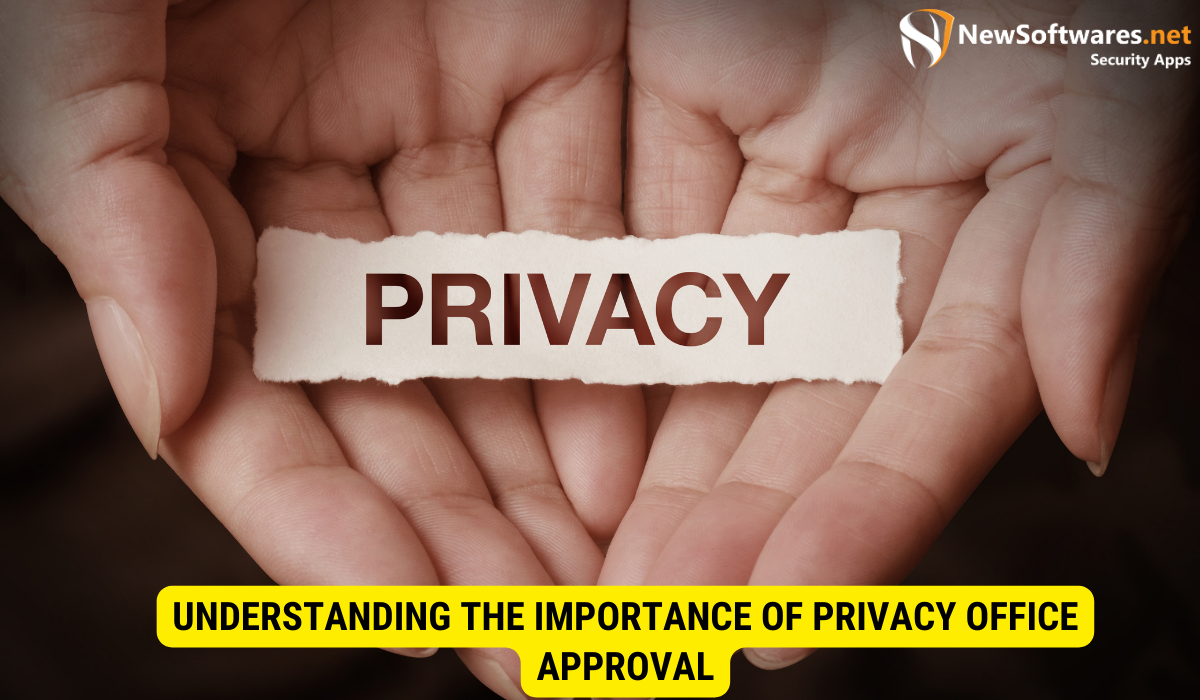Privacy office approval is crucial for contracts involving data use or disclosure to protect individuals’ privacy and ensure compliance with regulations. Key elements include contract components, consent mechanisms, and data protection measures. The approval process involves submitting the contract, addressing feedback, and obtaining final approval. Unauthorized data use can lead to legal consequences and damage trust. Best practices include drafting compliant contracts, ongoing compliance, and engaging experts.
To ensure the protection of sensitive data, it is crucial for any contract involving data use or disclosure to be approved by the privacy office. This approval ensures that the contract meets the necessary requirements for safeguarding information and maintaining privacy. Together, we will explore the importance of secrecy office approval, the key elements of an approved contract, the approval process itself, the consequences of unauthorized data use, and best practices for ensuring contract approval.
Understanding the Importance of Privacy Office Approval

Before delving into the specifics of privacy office approval, it is essential to grasp the significance of this process in ensuring data privacy and protection. The privacy office is vital in safeguarding sensitive information and upholding privacy regulations. By requiring contract approval, the privacy office enforces measures to prevent unauthorized data use and disclosure.
When it comes to data privacy, organizations must prioritize protecting personal information. This includes implementing robust policies and procedures that govern data collection, storage, and use. The privacy office is responsible for establishing and enforciis responsible for
One of the primary functions of the privacy office is to review and approve contracts that involve the use and disclosure of personal information. This step is crucial in ensuring data is handled appropriately complying with legal requirements. By carefully examining the terms and conditions of these contracts, the privacy office can identify any potential risks or privacy concerns and take the necessary steps to mitigate them.
The Role of the Privacy Office in Data Protection
The privacy office is responsible for establishing and enforcing policies and procedures related to data privacy. They oversee the management and protection of personal information within an organization. By reviewing and approving contracts, the privacy office ensures that data is handled appropriately and complies with legal requirements.
Furthermore, the privacy office collaborates with various departments within the organization to develop privacy training programs. These programs aim to educate employees about their responsibilities in protecting data privacy and provide them with the necessary tools and knowledge to handle personal information securely. By promoting a culture of privacy awareness, the privacy office helps create a strong foundation for data protection.
In addition to contract approval, the privacy office conducts regular audits and assessments to evaluate the organization’s compliance with privacy regulations. These audits involve reviewing data handling practices, assessing security measures’ effectiveness, and identifying improvement areas. By conducting these assessments, the privacy office can proactively address any vulnerabilities or gaps in data protection, ensuring that the organization complies with privacy laws.
Why Approval is Necessary for Data Use and Disclosure
Approval from the privacy office is necessary for data use and disclosure to protect individuals’ privacy rights and maintain regulatory compliance. Without such approval, organizations risk unauthorized use of sensitive data, leading to violations of privacy laws and potential legal repercussions. Approval ensures the contract incorporates safeguards to secure data, including proper consent mechanisms and data protection measures.
Moreover, the privacy office considers the potential risks associated with data use and disclosure. They assess whether the proposed data handling practices align with the organization’s privacy policies and legal obligations. This evaluation helps prevent unintended consequences from misusing or mishandling personal information.
By requiring privacy office approval, organizations demonstrate their commitment to data privacy and protection. This approval process is a safeguard, ensuring that all parties involved in data use and disclosure adhere to the necessary privacy standards. It also assures individuals that their personal information is being handled responsibly and in accordance with applicable laws and regulations.
Key Elements of a Privacy Office-Approved Contract
A privacy office-approved contract contains specific elements crucial for protecting data privacy and maintaining compliance. These elements include:
Identifying Essential Contract Components
The contract should identify the parties involved, their respective roles and responsibilities, and the purpose for which the data will be used or disclosed. It should also specify the types of data that will be involved and the duration of the contract. Additionally, the contract should outline the data protection and security measures that will be implemented to safeguard the data.
The Role of Consent in Data Use and Disclosure
Consent is a fundamental aspect of data use and disclosure. The contract should include provisions that outline how the parties will obtain and manage consent from individuals whose data will be processed. This includes ensuring that individuals are fully informed about the purposes and scope of data use or disclosure, and that they can revoke their consent if desired.
The Approval Process for Data Use and Disclosure Contracts
Obtaining privacy office approval for contracts involving data use and disclosure involves several important steps. By following these steps, organizations can ensure that their contracts meet the requirements for safeguarding data privacy:
Steps to Obtain Privacy Office Approval
- Review and understand the privacy office’s guidelines and requirements for contract approval.
- Ensure the contract contains all the necessary elements and provisions to protect data privacy and maintain compliance.
- Submit the contract to the privacy office for review and approval, providing any additional documentation or information as requested.
- Address any feedback or concerns the privacy office raises and make the necessary revisions to the contract.
- Obtain final approval from the privacy office before proceeding with data use or disclosure activities.
Common Reasons for Contract Rejection
The privacy office may reject contracts for various reasons. Some common reasons include inadequate data protection measures, lack of clarity in contract terms, failure to obtain proper consent from individuals, or non-compliance with privacy laws and regulations. It is essential to address any concerns the privacy office raises promptly and make the necessary revisions to ensure contract approval.
Consequences of Using or Disclosing Data Without Approval
Using or disclosing data without obtaining privacy office approval can have significant consequences for organizations:
Legal Implications of Unauthorized Data Use
Unauthorized data use may result in legal consequences, including fines, penalties, and legal actions from individuals or regulatory authorities. Violating privacy laws can lead to reputational damage and potential loss of business opportunities.
Impact on Trust and Reputation
Using or disclosing data without proper approval can erode trust in an organization. Individuals entrust their personal information to organizations, expecting it to be handled responsibly and securely. Unauthorized data use violates this trust and damages the organization’s reputation.
Best Practices for Ensuring Contract Approval

Organizations can ensure contract approval by following these best practices:
Tips for Drafting a Compliant Contract
- Thoroughly research and understand the privacy laws and regulations applicable to your industry and jurisdiction.
- Clearly define the contract’s scope and purpose of data use or disclosure.
- Include provisions that address consent, data protection measures, data retention, and data breach notification.
- Ensure that the contract aligns with the organization’s privacy policies and procedures.
- Engage legal and privacy experts when drafting the contract to ensure compliance.
How to Maintain Compliance Over Time?
Compliance with data use and disclosure requirements goes beyond contract approval. Organizations must continuously monitor and update their practices to maintain compliance over time:
- Regularly review and update contracts to reflect changes in privacy laws and regulations.
- Conduct periodic audits and assessments to ensure ongoing compliance with contract terms and data protection requirements.
- Provide regular training and awareness programs for employees to educate them about their responsibilities regarding data privacy.
- Stay informed about emerging privacy trends and best practices to adapt contracts and practices accordingly.
Key Takeaways
Privacy office approval is essential for data use and disclosure contracts to protect individuals’ privacy rights and maintain regulatory compliance. Key elements of an approved contract include essential contract components and provisions related to consent and data protection. Obtaining approval involves following a step-by-step process, addressing any feedback or concerns from the privacy office. Failure to obtain approval can result in legal implications, damage trust and reputation, and damage organizations’ reputational damage. To ensure contract approval, organizations should follow best practices such as drafting compliant contracts, maintaining compliance over time, and engaging legal and privacy experts when needed.
FAQs
What is the privacy office’s role in data protection?
The privacy office is responsible for establishing and enforcing policies and procedures related to data privacy. They oversee the management and protection of personal information within an organization.
Why is consent important in data use and disclosure?
Consent is important in data use and disclosure as it ensures that individuals are fully informed about the purposes and scope of data use or disclosure and can revoke their consent if desired.
What are the consequences of unauthorized data use?
Unauthorized data use can have legal implications, such as fines and penalties, and damage an organization’s reputation and trust. It may also result in legal actions from individuals or regulatory authorities.
How can organiszations ensure contract approval?
Organizations can ensure contract approval by following best practices, including drafting compliant contracts, addressing privacy requirements, engaging legal and privacy experts, and maintaining ongoing compliance through regular monitoring and training.
Conclusion
In conclusion, privacy office approval for data use and disclosure contracts is a critical step in safeguarding individuals’ privacy rights and ensuring regulatory compliance. By adhering to key elements, addressing consent mechanisms, and maintaining ongoing compliance, organizations can protect sensitive data and uphold trust while avoiding legal consequences.
